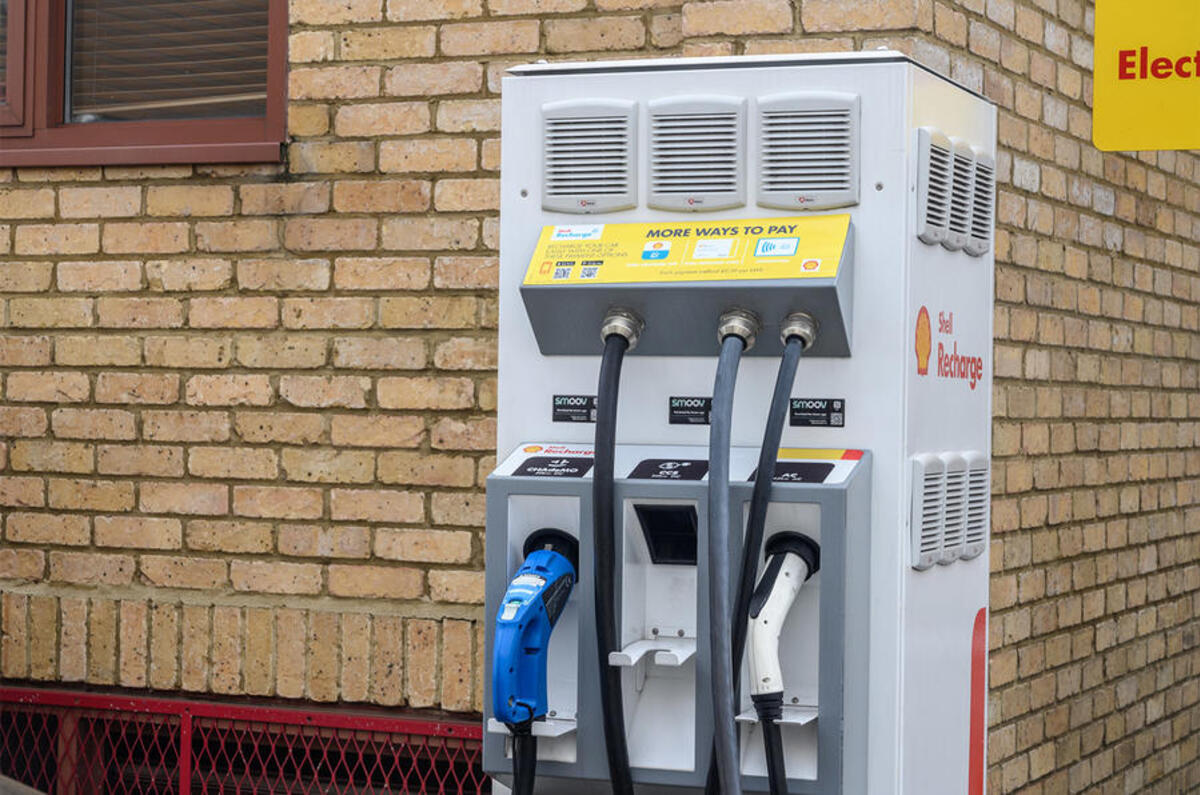Shell has promised a huge expansion of its electric vehicle charging network and major investment into hydrogen as part of its plan to achieve net-zero emissions by 2050.
The Anglo-Dutch oil giant has signalled that it intends to gradually reduce its oil production, which peaked in 2019, while expanding its efforts in renewables, biofuels and hydrogen.
Shell has recently expanded its interested in EV charging, opening its first bespoke EV-charging forecourt in the UK last year and acquiring EV charging firm Ubitricity.
The company currently has around 60,000 EV charging points worldwide operated under its Shell, Ubitricity and NewMotion brands, and boss Ben van Beurden has pledged to increate that number to “more than half a million” by the end of 2025.
Shell hasn't given specific details of how many EV chargers it plans to install in individual markets. It currently operates EV chargers in 14 countries.
In addition, Shell will also start to produce environmentally friendly biofuels in its existing refineries and is aiming to dramatically grow hydrogen production and sales, both for hydrogen FCEVs and for domestic house heating. It will also expand sales of hydrogen, liquefied natural gas (LNG) and renewable natural gas at forecourts.
Shell is aiming to sell 560TWh hours of electricity a year by 2030 for both automotive and domestic usage, doubling its current levels.
With EV ownership rapidly becoming more popular and increasingly tough legislation to reduce emissions, several major oil giants are pushing to expand their interests in EV chargers. In 2018, BP bought Chargemaster for £130 million, gaining the largest EV charging network in the UK.
READ MORE
Shell acquires leading EV charging firm Ubitricity
How Shell is reinventing the fuel station for EVs
BP Chargemaster activated first 150kW ultra-fast EV chargers









Join the debate
Add your comment
So what are Shell going to do with regards to selling 'leccy, are they going to re-sell the national grids juice or are they going to start producing their own electricity with their own powerstations etc or are they going to be a department of government that is responsible for providing the nation with the charging points needed to fulfil the promise of no more ICE in 9 years, are they going to be in competition from other national grid providers, and shouldn't the government be tendering for rival providers to sell the national grids electricity for the cheapest price possible?
Can anyone apply to re-sell electricity providing they have the space and an electrical substaion?
All right, read the first four, and no matter how you cut it, we're going to need cleaner transport, and that all ICE Vehicles, so, like it or lump it, this is the start, over the past year air pollution has gone down, I don't live in a heavily populated area,but I bet the pe who do, notice how better they feel, less noise pollution too.
Hopefully they will do a better job than Ecotricity whose hopeless unreliable chargers have hobbled the UK's motorway charging network for years. I have run EV's for more than 6 years now and Ecotricity are easily the worst provider in the UK in a space hardly filled with inspiring contenders. I once travelled to Bristol and stopped at 4 different Ecotricity chargers, none worked. Useless.
Every Ecotricity has worked.
Maybe it's my location of usage between Gatwick and Heathrow.
Hydrogen makes me laugh so hard though. My personal view is it's a pointless fuel. It's inefficient, difficult to store and transport.
If you think EVs will put a strain on the grid (they won't) wait until you need 3 times the amount of energy for a hydrogen fuel cell....
See fleetnews or zap map for survey results.
Ecotricity in 16th place, worst in survey. Tesla comes in first and Shell somewhere in between.